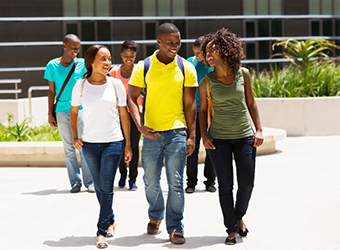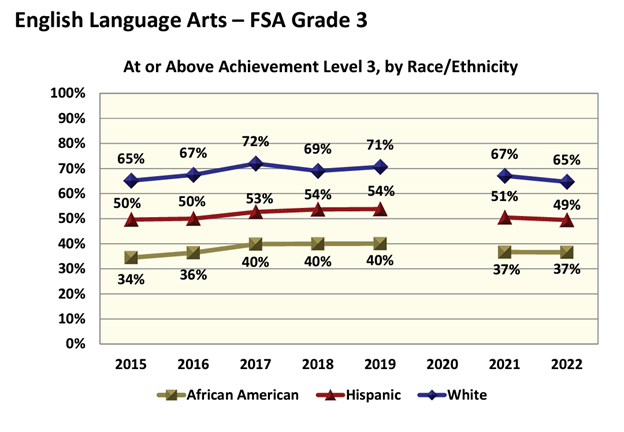 by Paul Luna, President and CEO, Helios Education Foundation
by Paul Luna, President and CEO, Helios Education Foundation
Across the Tampa Bay region, more than 345,000 students will start school this month. The new school year brings with it the shared hope, among everyone invested in the success of our schools and communities, that all students will be able to thrive in their education and be prepared for further opportunities after they graduate high school.
But the reality is that students from some groups are much less likely to succeed in school and go on to earn a college degree. This is particularly true for Black students.
Recent numbers from the Florida Department of Education are a matter of concern not just for educators and parents, but for all Floridians. Just 37 percent of Black students passed or exceeded benchmarks in language arts compared to 65 percent of their White peers.

Florida Department of Education, “Florida Standards Assessments: Grade 3 English Language Arts”
Similar gaps manifest when it comes to high school graduation and college-going. Fewer than half of Black high school graduates will enroll at a four-year college after graduation (compared to 58 percent of white high school graduates). Only 29 percent of Black adults ages 24-64 have a degree from a two- or four-year college. This rate is nearly 32 percent lower than the attainment rate for all Floridians in that age range.
While the percentages may shift from year to year, the persistence and severity of these gaps are regrettably familiar. Collectively, we have not done enough or acted with enough urgency. Too often the educational disparities in our state are perceived as abstract challenges, as numbers in a data set. But the students who are struggling are our neighbors. They are members of our community. They are our future.
Helios Education Foundation aims to accelerate the pace of educational improvement in Florida by specifically focusing on improving education outcomes for Black and low-income students. These are the largest populations of students struggling the most and the most in need of intentional support. Our efforts center on three key drivers: ensuring that students are reading by the end of third grade, increasing college enrollment rates, and increasing attainment of two- and four-year college degrees.
Helios is partnering with the Florida African American Male Experience (FAAME) Initiative at St. Petersburg College to support Black males. FAAME is a robust ecosystem of support that empowers African American male students in their journey from grade school to postsecondary degree completion. The initiative will serve 250 Black male college students in the main FAAME program, 30 Black eighth-grade students in a Summer Boot Camp program, and 45 Black high school seniors in a summer bridge program.
While efforts and initiatives like FAAME can have a meaningful impact, truly accelerating the pace of change and improvement in Florida will require commitment and urgency on the part of the entire education community, including policymakers. Although it will take time, we must ensure that all children in Florida have the full potential to succeed in an educational pathway that will take them where they want to go. What we do this school year can have an impact on students for their lifetime and our communities for generations to come.
Visit Helios Education Foundation’s website to learn more about their Florida Black Student Success Strategy.
RELATED ARTICLES:
